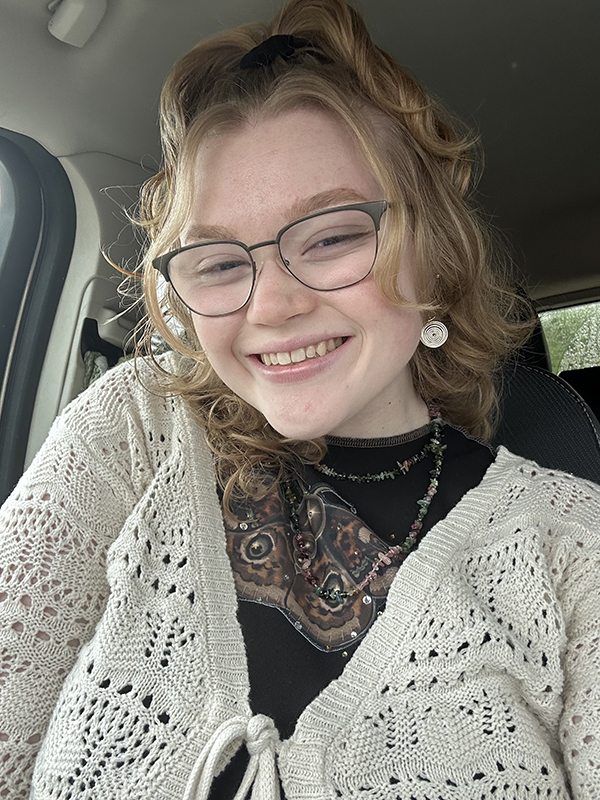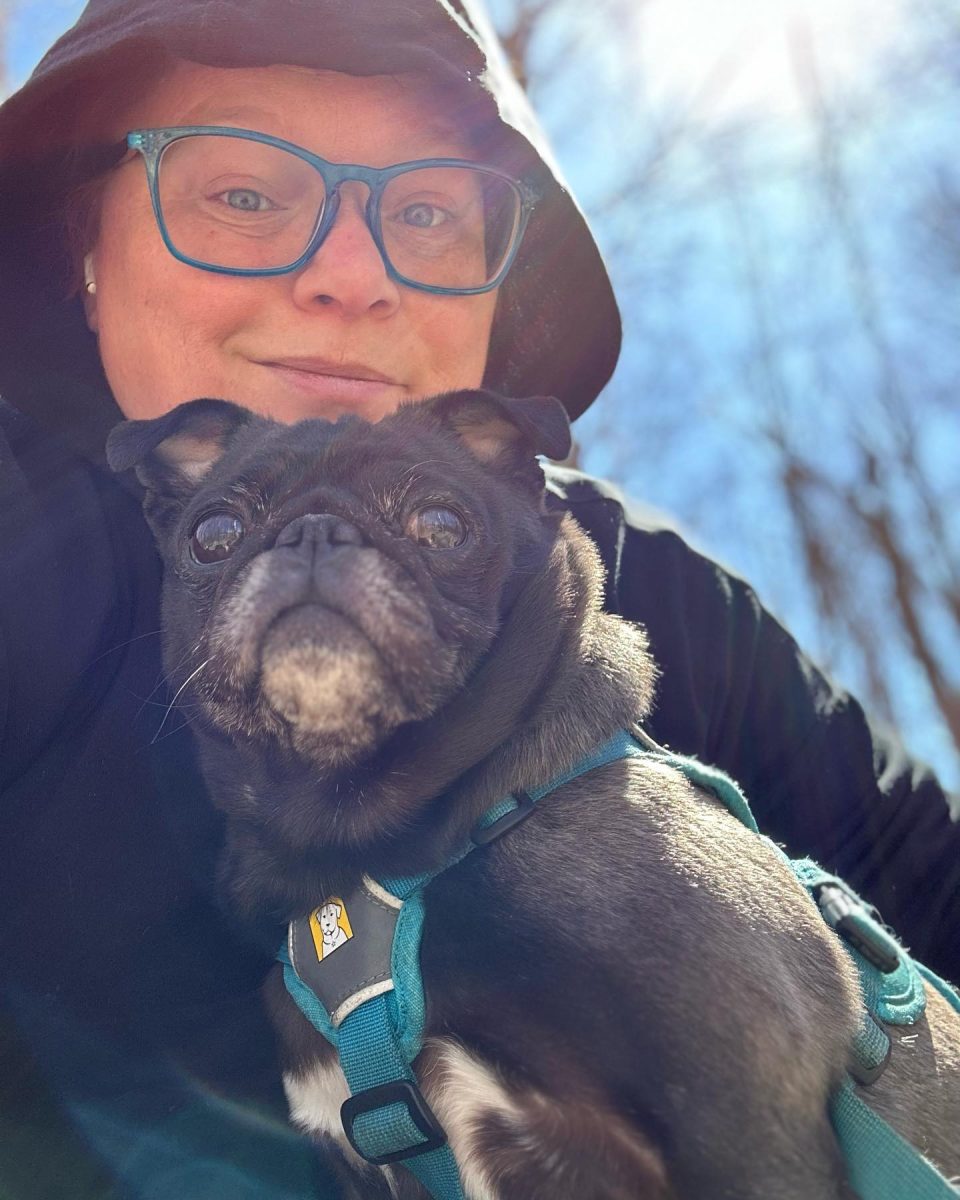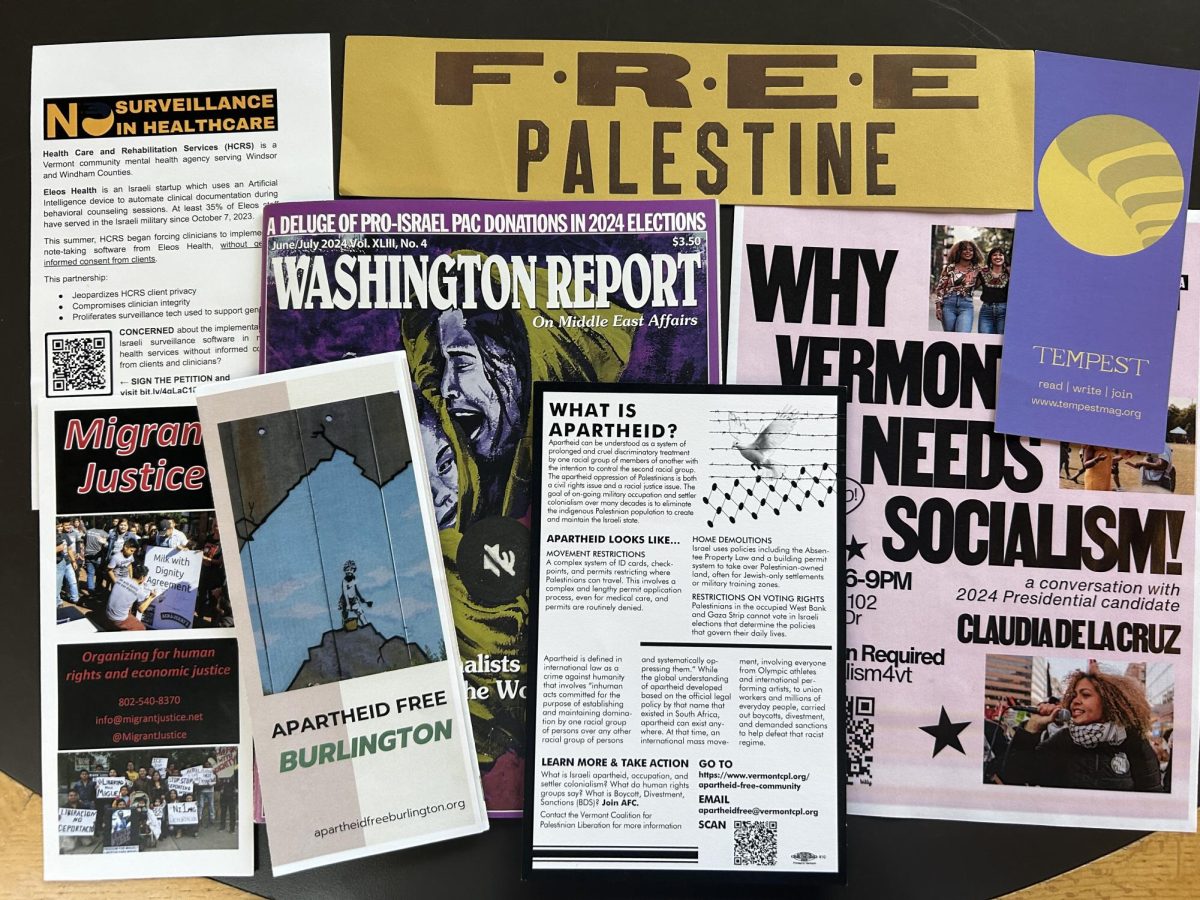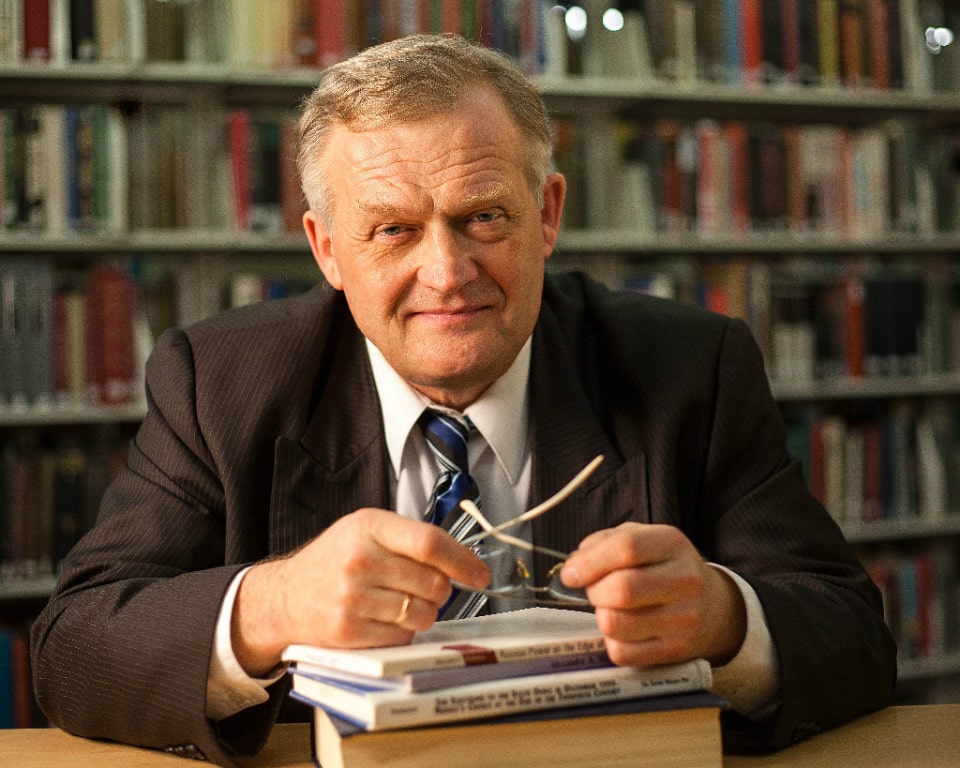George Saunders is the author of five books of short stories, and one nonfiction book. He has been awarded both a MacArthur Fellowship and a Guggenheim Fellowship. He has appeared on “The Colbert Report” and “Late Night with David Letterman.” Saunders has also written a feature-length script for one of his short stories, “Sea Oak.”
Saunders teaches at Syracuse University in the Creative Writing MFA program.
On Wed. April, 7, Saunders visited Johnson State College.
What inspired you to become an author?
Well, it was kind of a gradual process. I started off as an engineer, actually, and kind of had that experience of not being very good at it, and not feeling very powerful at it. And then I kind of just kept wandering up to the library, up to the fiction section, and when I was reading I always felt like I knew what I was doing. It got me energized in a way that engineering never did. So that kind of put the seed in my mind.
Then I spent two years in Asia in the oil fields and I had a lot of time to read, and also a lot of time to stew a bunch of crazy things. Somehow then I gradually started taking notes. I woke up one day and thought that the only thing I wanted to do was write, and that the only thing I wanted to be was a writer. If you get passionate, you can do anything.
I started out playing music, but I never had that extra ten percent. But with writing I’ve never been like that. Go in a direction of your strong opinion, I always say. If someone tells me, ‘Hey, wear this shirt,’ I say well, ok, I don’t know. But if someone says, ‘Okay, change this paragraph,’ I’m either yes or no, and I don’t need anyone else’s opinion.
I said I wanted to be a writer when I was 22. I didn’t publish my first book until I was 38. I’ve always been passionate about writing, though.
Who inspires you?
Honestly, inspiration is not something I think about at this point in my life. I’m just so hungry to get stuff done, maybe even more hungry than when I was in my twenties. I don’t have to look very far for inspiration. But I suppose these days I’m getting a lot of inspiration from the Russian writer Tolstoy.
In my twenties, I loved Hemingway. And after that, it was Kerouac. And then there was a writer named Barry Hannah. And then I had a teacher named Tobias Wolff. So I guess you kind of add them to your basket as you go along, as you need them. Toby was a great artist, a great father and a great husband. Eventually I realized, oh great, I don’t have to rob a bank to become a writer. I can just be a nice guy.
How do you deal with criticism?
I think the faster you can learn to use it, the better off you are. I think with your first book you tend to wilt, like, ‘Oh, you hurt my feelings.’
I took a trip to Africa with Bill Clinton a couple years ago. I asked him that question in terms of him having his difficult years with the Monica Lewinski thing. I said, ‘How do you get up in the morning. How do you deal with this criticism.’ And he said that Hillary had told him that you have to imagine all this criticism coming at you and your impulse is to just duck and kind of stay mad. But if you’re wise, you’ll listen to all of it, roll off what needs to roll off and look for any bits of nugget that might be in there.
One thing that I try to think is if a review trashes my book, that’s all right. I just need my ear to see if there is anything in there that is true, or anything in there that is helpful. It’s like if you play sports, and your coach yells at you. That’s all right. If what he is saying is correct, you’re grateful.
The thing about the great artists that I know is that they are so tough in that way. They don’t have tender feelings. There are sensitive people. But when it comes to their work they are able to take a hit. Good criticism is not snarky, it’s supposed to be an act of love.
What are your goals as a writer?
Hmm, well, I think my highest goal is to get some sense of how I feel about the world in there. The way I feel about the world is very complicated. I love being in the world. The trick is to get some version of that into a story. Try and get in some contradictions of life.
I’m just trying to take you as a reader on a wild ride, something that you can’t quite follow me, not quite sure what’s happening, not quite sure what the message is and you don’t care, but you can’t just cant stop. Like in a David Lynch film.
I think for an artist if you can make something that compels someone to watch it or read it and not be able to pull out of it, that’s the 99 percent of the job. And Lynch does that in way that you cant look away. The trick is that you just have to be hypnotic.
One thing that the young artist has to remember is that there is the talking about it, and that’s fun and interesting, and then there’s the actual doing it. And doing it takes a different set of muscles. Like playing tennis. You can explain the strategy and so on, but to actually do it on the fly takes a whole different set of muscles. It’s not really intellectual. I’m sure it’s partly cerebral, but really it’s just muscle memory and instinct.
So my experience has been that that is the place that most good writing takes place. But to have this idea that writing is intellectual, and that we have to plan it, is all bullshit. It’s not particularly helpful to a young writer. And so it’s like, well, that girl is either going to go out with you or not. And she’s going to either have fun or not. So it’s up to you to make sure she has a great date. Same thing with writing a book. You can be as smart as you like, but if you can’t make the story alive then you lose. You have to be sensitive to what you have that makes you special as an artist. And it takes time to figure that out.
For me, for my apprenticeship, I tried to write like Hemingway. I could kind of do it, but my writing was boring. So then you try something else, but that doesn’t work either. And then gradually you run out of idols and you ask yourself, ‘What do I have?’ And then there’s a moment when you intuitively realize your strengths.
Do you ever find yourself becoming emotionally attached to your characters?
Yeah, kind of. But not, well, I hear that some writers are like that. Like I don’t cry if they die. They’re characters, but they’re also constructs. So I do try to feel what the person’s thinking and can feel very fond of them, but at the same time it’s not method acting. I don’t have to be that guy to make them real. They’re symbols.
I try to be very generous with a character. In fiction you try and write a character that is less likable than you, and dumber than you. Somebody that you can look down on. But what I try to do is not do that. Like in different drafts, let the guy be smarter and let the guy respond the way that I would. You’ll get more emotional energy that way than if you had some idiot completely beneath consideration.
How often do you write?
Well, every day. I remember when I was an undergrad I wanted to be good at it so much, but I didn’t want to try it. And then I thought I would do it when I felt inspired, which was never, really. Then when I got more serious about it I forced myself. When you’re young it’s important to have that discipline. Now it’s easier, and I love doing it. But in a sense it’s all about what works for you as the artist. It’s a pretty iffy skill set.
What is literary fiction?
What is it? That’s a good question. I mean, there really shouldn’t be any reason why it should be different than fiction. But I think probably it’s fiction that aspires to look to really look at the way human beings work, how they really work: how their minds work, how they make the mistakes that they make. Literary fiction would use 100 percent of the resources that they use. To me it’s the most interesting kind of fiction we have because we are here to try and understand human beings and why we are necessary. I guess you could compare to fiction writing, which is more formulaic and more for entertainment, but I don’t think that’s a distinction that you would even make.
For me, I love the idea of looking at people and actualizing who they are, for real. You walk on a street and see a guy and think, ‘What’s he actually thinking, what’s he actually afraid of? That’s very exciting to me.
What can be said about the zombie craze, and how would one keep it from becoming stale?
Sometimes to get the story to do the next thing, you have to look around and use what you actually know. You have to know everything that’s been done, so that you know what resources you have and then you get into your particular story and you have two interests: one is to make that story work and the other is to not be too derivative of what came before. So then it’s suddenly like MacGyver, and you’ve got a diaper and a knife and you have to diffuse a nuclear device. You just go out and do it. The trick would be to know everything about zombies, and if you need it you’ll figure out what the next thing is.
How do ideas come to you?
They come, for me, through rewriting. I try and never have an idea out of the blue. Sometimes I’ll have a small idea, but then the point is to poke around at your paragraphs and try to make them alive. And somehow when I do that, another idea will sprout out. I just try and take some text, and play with it until it gives up the next secret, and repeat. Treat it like a road trip in that if I see the biggest ball of twine I’ll stop, and so I like to treat it like that.






